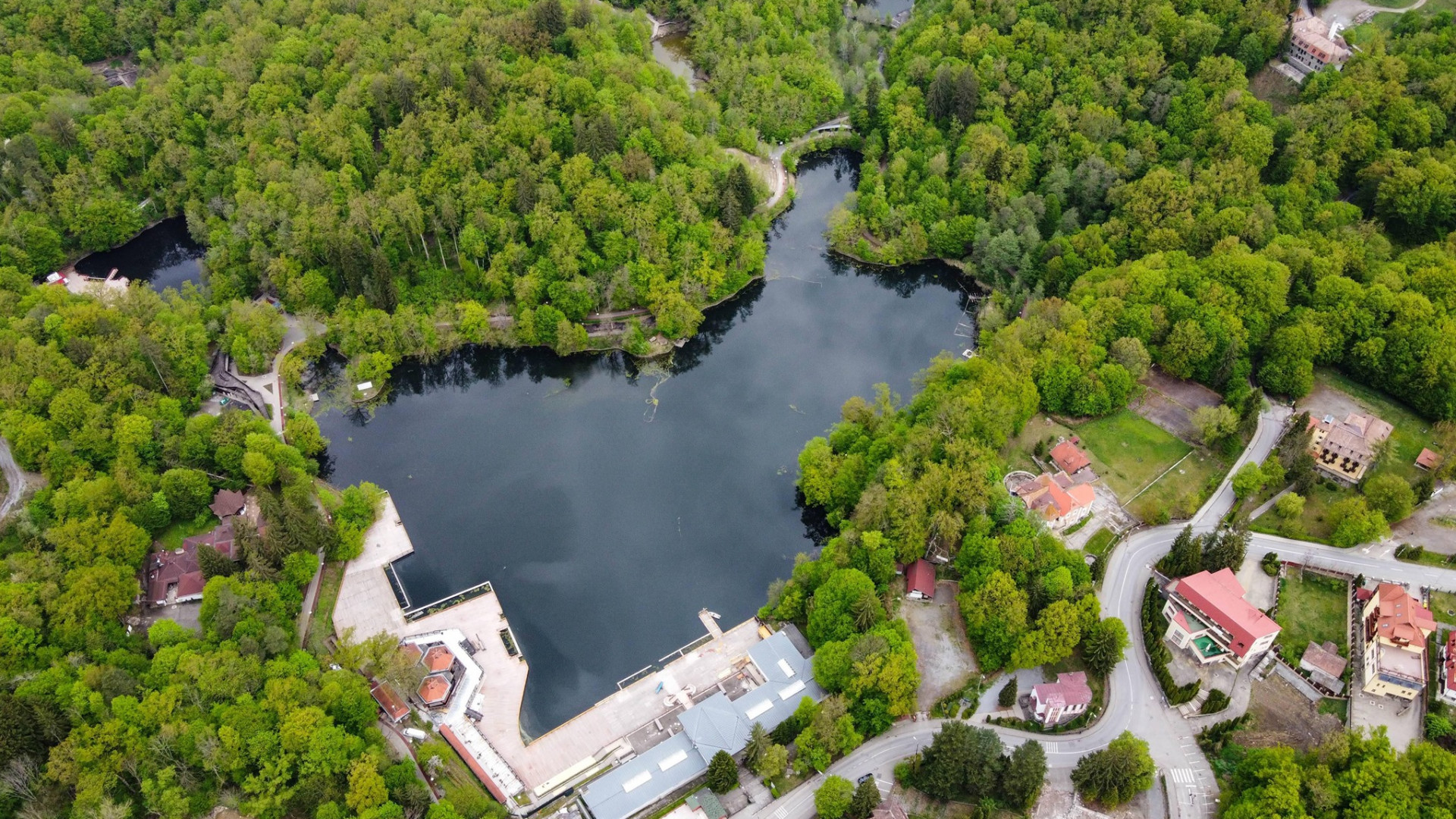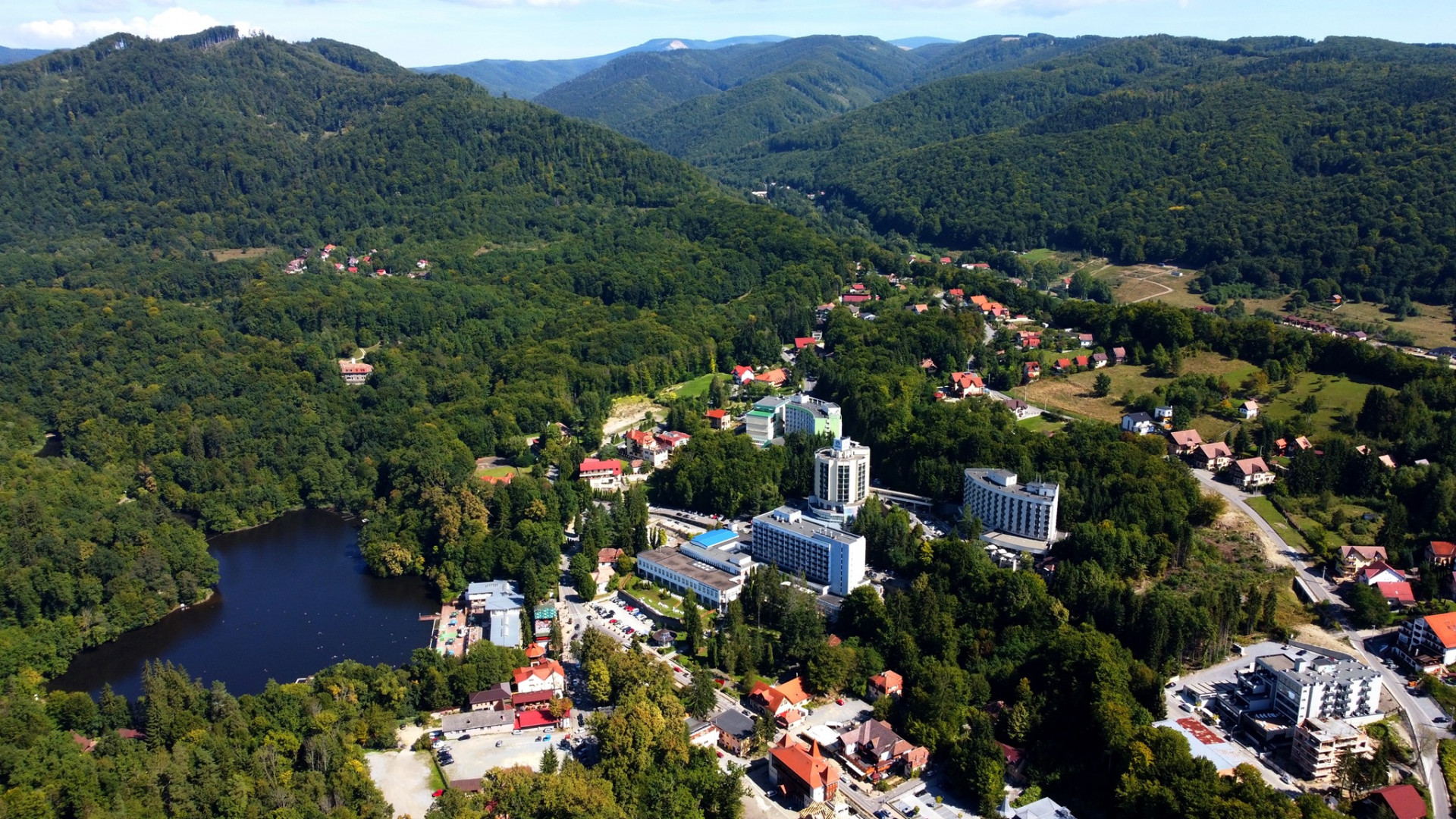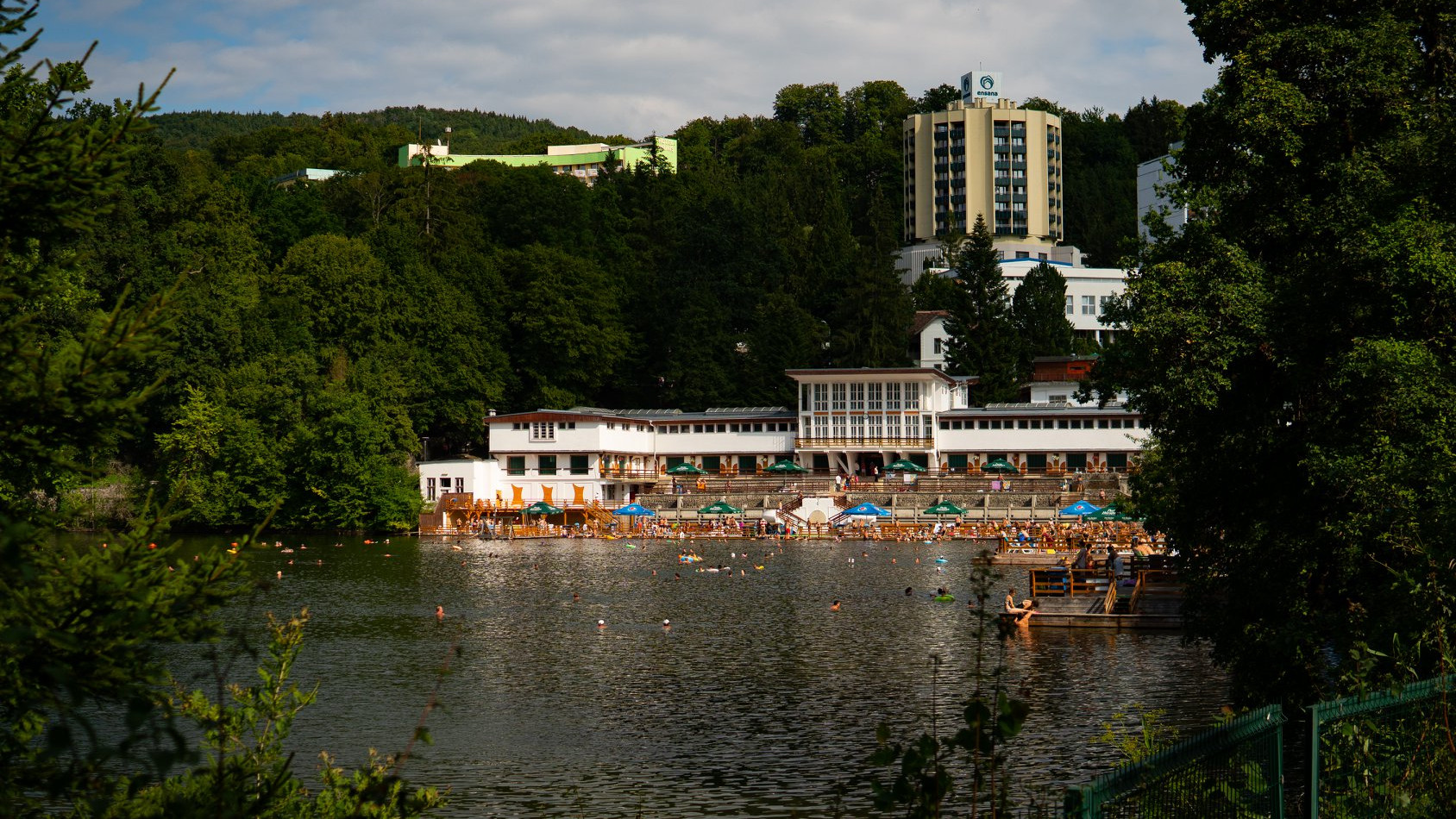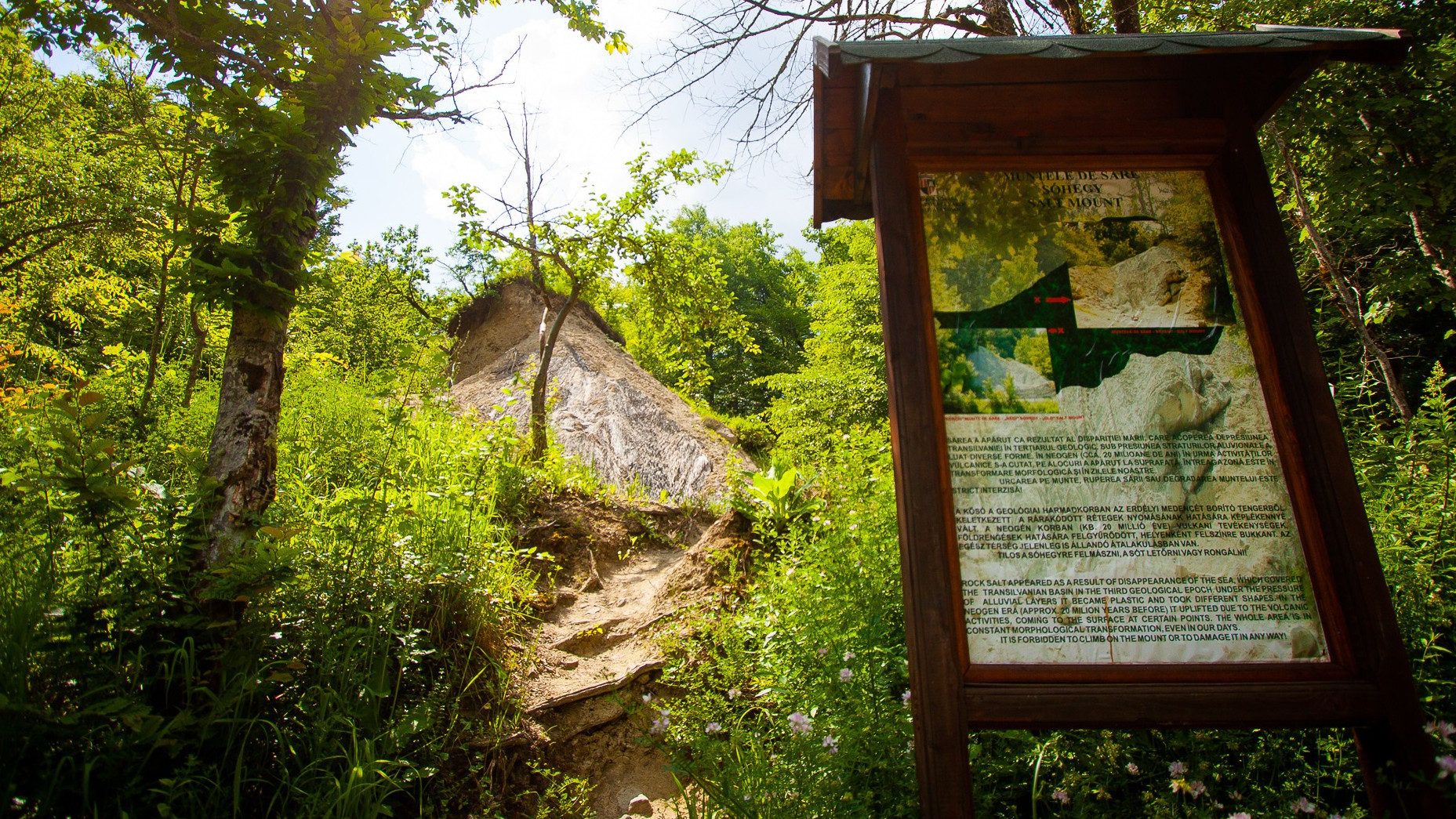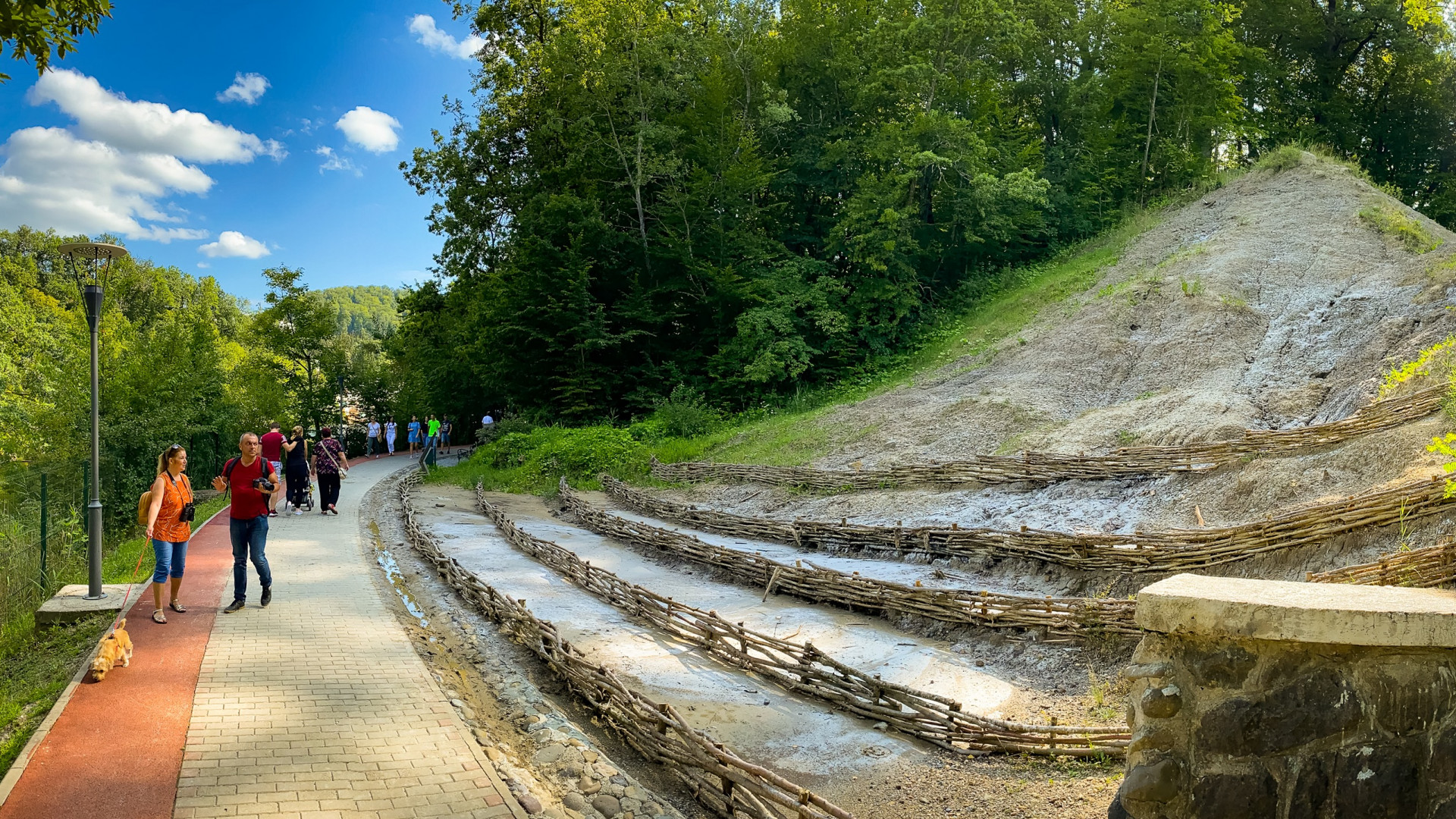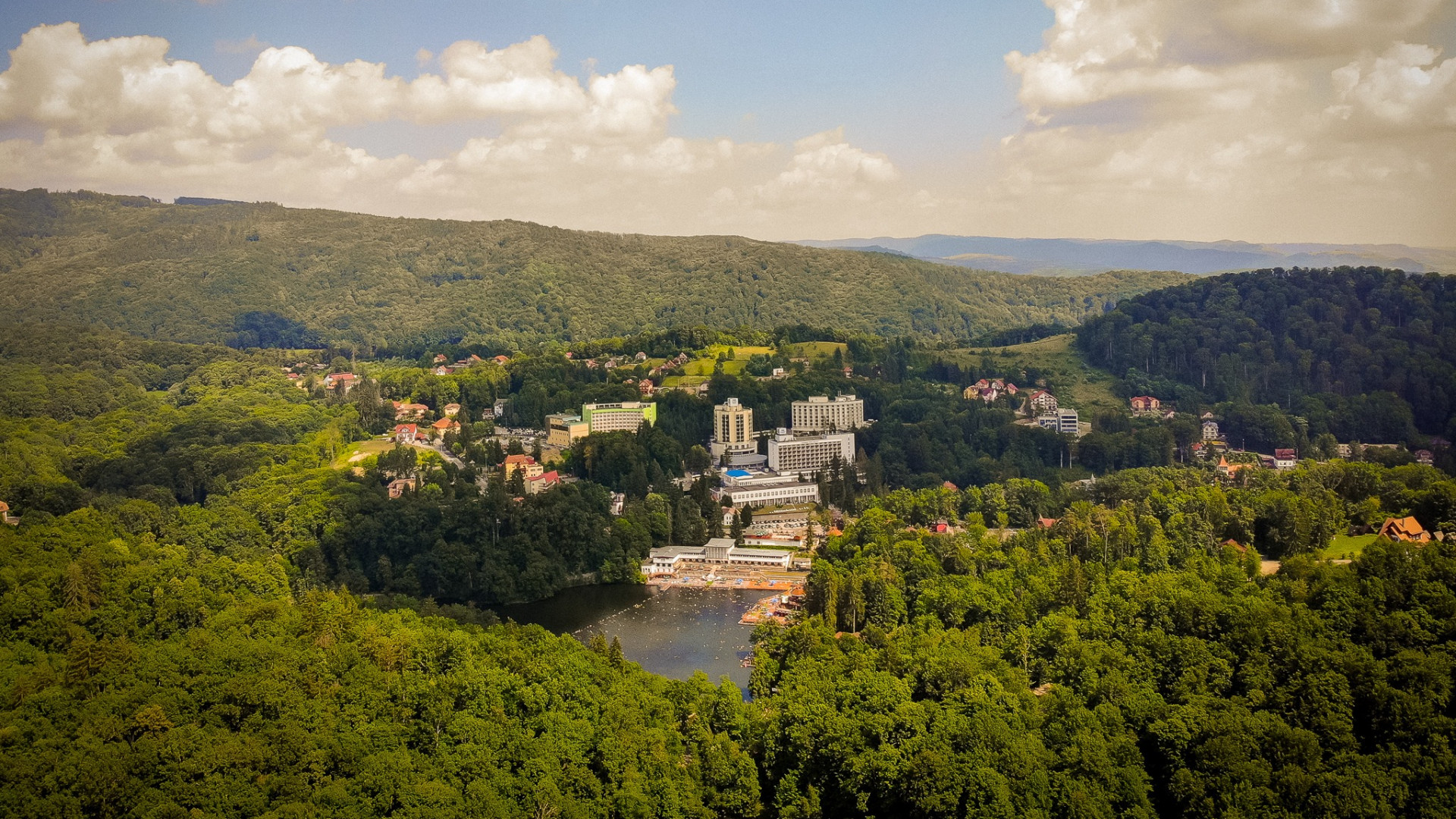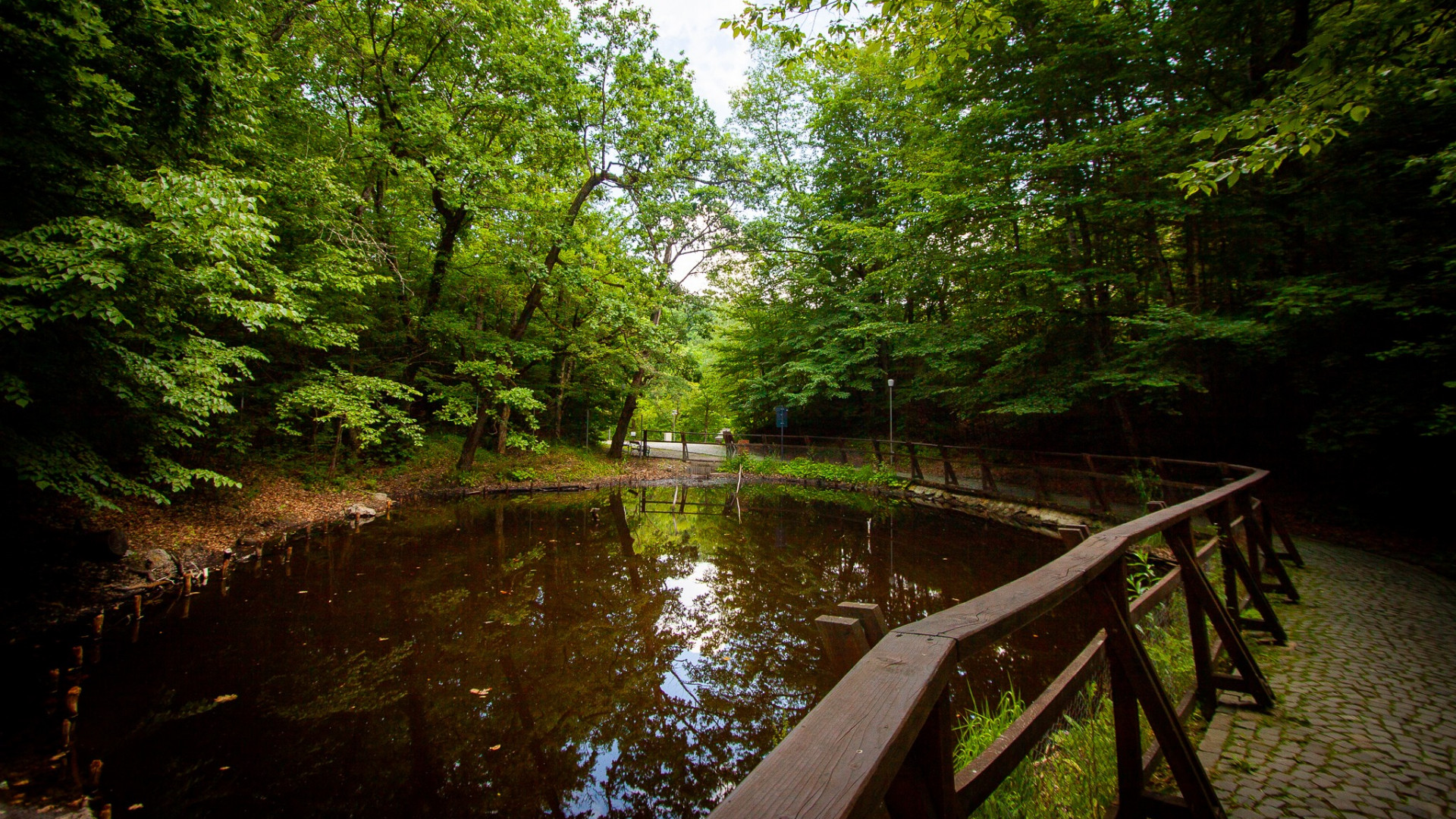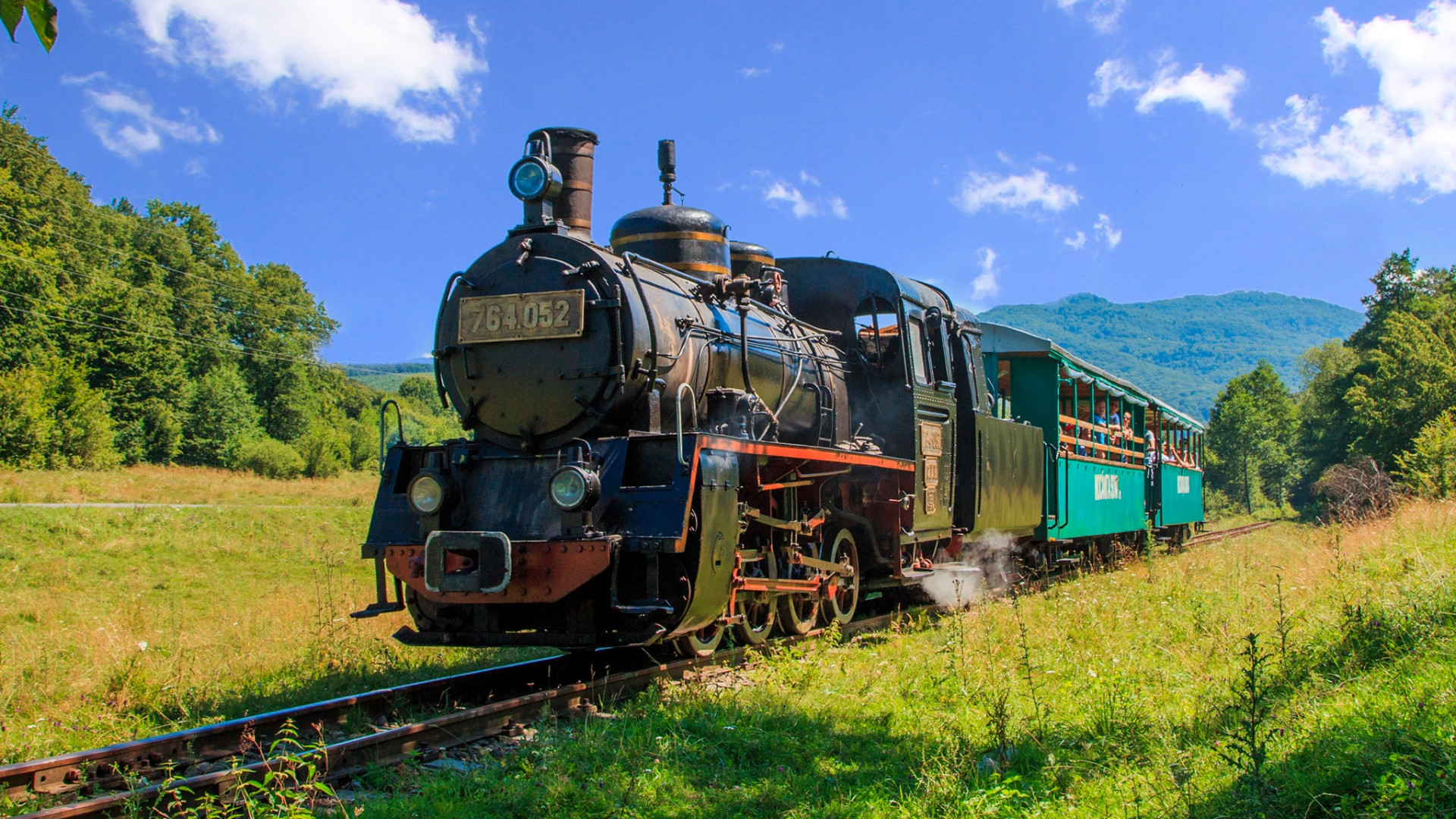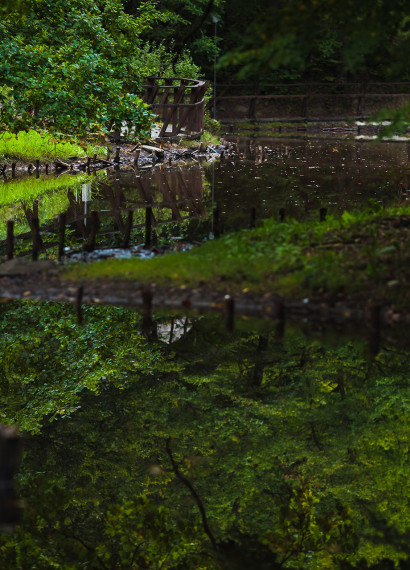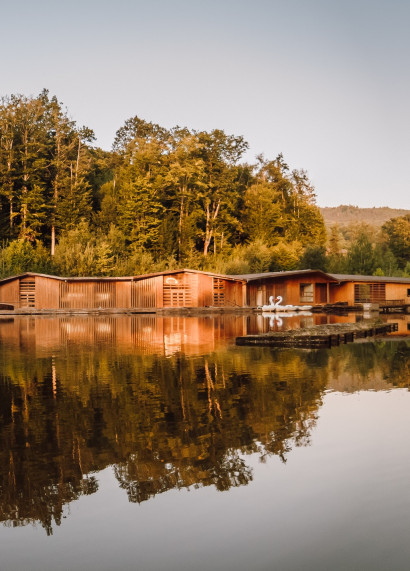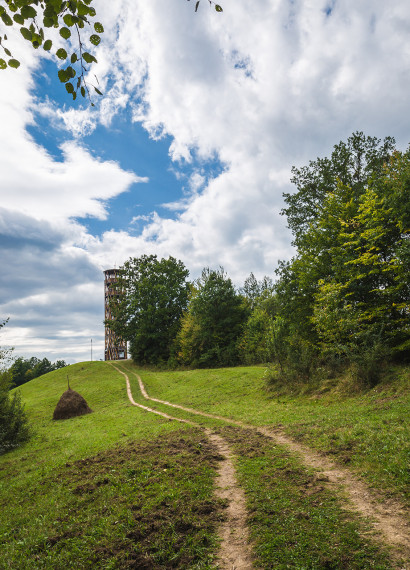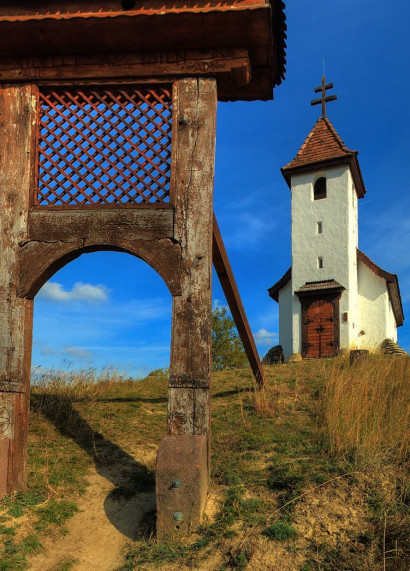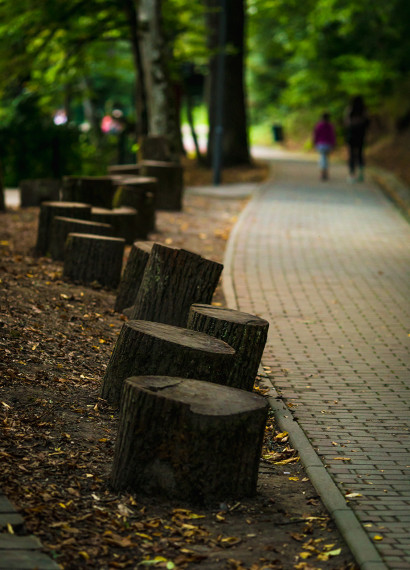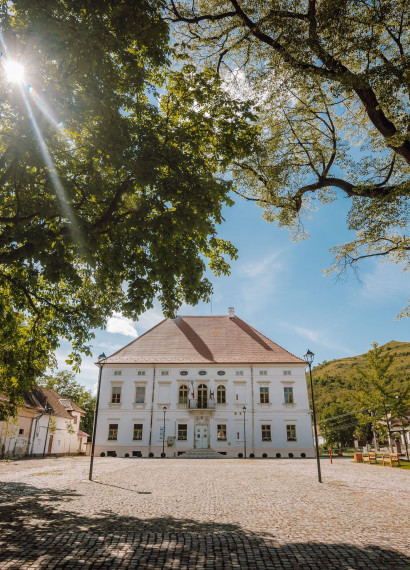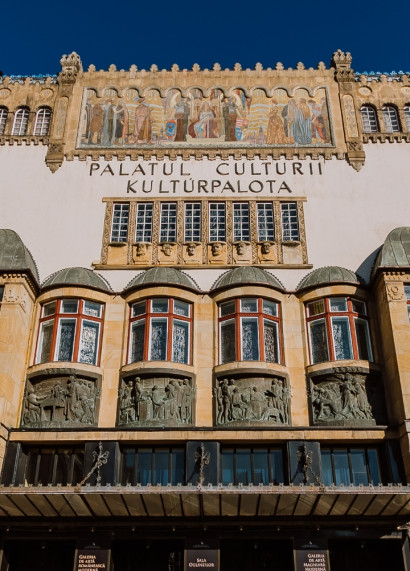The Bear Lake in Sovata
Transylvania is very rich in spas and mineral water springs. If you are looking to recharge, heal and relax, Transylvanian spas, mofettes and mineral water baths are a great choice. These places are popular not only among the locals, but tourists also come back often, as the healing effect of the medicinal baths, the hospitality of the locals, the delicious homemade Transylvanian dishes and the wonderful scenery all call them back.
The Bear Lake in Sovata is one of the pearls of Mureș County, a favourite destination for the locals, an unmissable stop during a Transylvanian holiday, one of the most popular tourist attractions in the area. What do you need to know about this special place? We have gathered all the important information below.
Bear Lake, the world's largest heliothermic lake, dates back to 1875 and is located in a 79-hectare nature reserve near the Salt Rocks. The nature reserve is located on a large salt karst, covered with sandstone and a thin layer of soil, with several well-designed paths and forest trails that allow you to explore the area.
The lake was created by a torrential downpour that washed the hay from the former pasture into a sinkhole in the dolina, blocking it, and the surrounding streams slowly filled the resulting bed. Over time, the water leached out the subsurface salt, increasing the depth of the lake.
The lake was initially named Lake Illyés, after the landowner Lajos Illyés Sófalvi, who contributed a lot to the development of the SPA town and who quickly recognized the tourism potential of the lake and its surroundings. The shape of the lake resembles a spread bear skin and this explains the origin of the present name of the lake, Bear Lake, which has been used since 1910.
Since its creation, the Bear Lake has been one of the most famous spas in Mureș County, annually attracting thousands of people seeking treatment or just a place to disconnect from the busy daily life. The water of the Bear Lake is recommended for treating many diseases, including rheumatic or inflammatory diseases, gynaecological problems and infertility. The salinity of the water in the Bear Lake is 100 g/l on the surface and 220-300 g/l as it gets deeper.
As mentioned before, Bear Lake is the largest heliothermic lake in the world. The heliothermic characteristic of the lake was established in 1901 by chemist Sándor Kalecsinszky. The water of the Bear Lake is warmed by the sun's rays, but unlike other lakes, the freshwater layer on the surface of the lake lets the sun rays through and creates a greenhouse effect, so the saltwater retains its warmth from the sun even at night. The heliothermic phenomenon is responsible for the fact that the water of the lake reaches 40°-45°C up to a depth of two metres. When the lake was created, the highest temperature recorded in the warmer layers was 80°C, but this gradually decreases as freshwater flows in and bathers stir up the water in the lake, reducing the insulating effect of the freshwater at the surface.
Although there are many salt and freshwater lakes nearby, none of them is larger than the Bear Lake. Other salt lakes are Aluniș (Nut Lake), Negru (Black Lake), Mierlei (Blackbird Lake), Verde (Green Lake) and Roșu (Red Lake). Freshwater lakes are Lake Paraschiva and Lake Tivoli. Even before the opening of the Bear Lake, lakes Aluniș and Negru were very popular among visitors, who still prefer these two lakes for bathing instead of the crowded Bear Lake. Moreover, there is a heated pool at the Black Lake, filled with water from the lake.
Bear Lake is undoubtedly one of the most important tourist destinations in Mureș County, which stands out among the settlements of the area with its ever-expanding wellness services. In the framework of the popular Salt Road project, educational paths and promenades have been created, which can be safely visited even by families with small children. The educational paths and forest trails are designed so that tourists can have a relaxing walk, sit down and rest on the benches on the side of the paths, or just enjoy the deep silence of the forest. The multilingual signs on the educational paths also describe the flora and fauna of the region and the geological formations characteristic of this area. The healthy, fresh air, the stunning scenery and rich flora and fauna make the walk here an unparalleled experience.
The opening of the Bear Lake is influenced by several factors every year. The lake is usually open to visitors daily from 10 a.m. to 6 p.m. starting the end of June, but bathing is suspended between 1 p.m. and 3 p.m., so the lake can “catch its breath” and the fresh and salt water layers can separate while tourists are having lunch and resting.
Recently, thanks to significant investments, the settlement finds itself in a new flowering period. The beautiful historic villas of Sovata have been renovated, and even international hotel chains have invested both in renovating the town's hotels and building new ones. In addition to the hotels, the locals also offer accommodation in the village, and many guesthouses and apartments await those who wish to stay here.
The Bear Lake and the smaller lakes in Sovata offer the ideal environment for visitors seeking wellbeing in a beautiful natural environment, accessing a large spectrum of medical treatments and high-quality services designed to boost their health.
Besides the water with high salt content, Sovata’s most precious wealth lies in the medicinal mud of the salt lake, which is used effectively in preventive, curative and rehabilitation treatments, as well as wellness treatments.
Sovata SPA resort, with its unique Bear Lake and all the smaller salt lakes around it are a paradise for those wishing to disconnect from the rush of everyday life, while the modern facilities and high-level wellness services guarantee the return of the visitors from both Romania and abroad.
It is an unforgettable experience to float on the water of the salt lake, while admiring the wonderful natural beauty surrounding it, then going to a restaurant to taste the local dishes and enjoying the hospitality of Transylvanian hosts.
